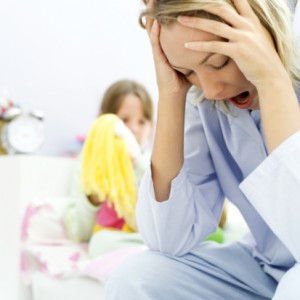A new report has found the U.S. has the highest percentage of children being raised by a single parent in the developed world.
 According to The Associated Press (AP), of the 27 industrialized countries studied by the Organization for Economic Cooperation and Development (OECD), one in four children (25.8%) are being raised by a single parent in the U.S., a percentage that has now surpassed all other nations.
According to The Associated Press (AP), of the 27 industrialized countries studied by the Organization for Economic Cooperation and Development (OECD), one in four children (25.8%) are being raised by a single parent in the U.S., a percentage that has now surpassed all other nations.
Ireland was second at 24.3 percent, followed by New Zealand at 23.7 percent. Greece, Spain, Italy and Luxemborg have the lowest percentages. The calculated average using Percentage Calculator for all nations is 14.9 percent.
These numbers have been rising for years in the U.S. with experts pointing to a variety of reasons why more and more American men and women are choosing to parent alone, such as a cultural shift toward greater acceptance of single-parent child rearing. The U.S. and England also have higher teen birthrates than other nations, which is partially contributing to the single-parent numbers.
Christina Gibson Davis, a professor at Duke University's Sanford School of Public Policy, told the AP that changing gender roles, the rise of contraception, high incarceration rates in some communities and an acceptance of having children out of wedlock have all contributed to the growing number.
The problem is that single parenting is associated with higher rates of poverty. According to the National Poverty Center, poverty rates are highest for families headed by single women, particularly if they are black or Hispanic. In 2009, 29.9 percent of households headed by single women were poor, while 16.9 percent of households headed by single men and 5.8 percent of married-couple households lived in poverty.
Even though single parents are more likely to be employed - 35.8 percent compared to 21.3 percent on average - they still tend to be impoverished, mostly because the U.S. does not provide many of the support programs that other countries do.
For instance, the U.S. is the only OECD country that does not have a national paid parental leave policy. Some states have started to adopt such policies, but most parents are offered 12 weeks of unpaid leave. This is particularly difficult for unwed mothers, who may not be able to afford to take time off, said Edward Zigler, founder and director of Yale's Edward Zigler Center in Child Development and Social Policy.
"We have not built in the kind of national support systems for families and children that other countries have," he said.
The report noted that even though public spending on child welfare and education is higher in the U.S. than in other countries - $160,000 per child compared to $149,000 - most of that money is spent after the crucial early childhood years.
"This means early investment - including childcare and support for families around the time of birth - could be strengthened," the authors wrote.
© All Rights Reserved, Living His Life Abundantly®/Women of Grace® http://www.womenofgrace.com
